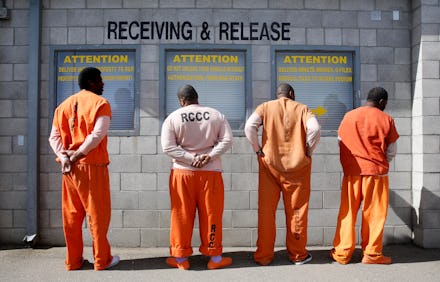The Government Just Took a Huge Step in Rolling Back the War on Drugs

In one fell swoop, the War on Drugs got a little less punitive.
A new ruling from the U.S. Sentencing Commission means that nearly half of all federal drug prisoners can apply for reduced sentences, according to Vox. The change affects more than 46,000 inmates.
Why it happened: Back in April, the Sentencing Commission decided that drug offenders were being sentenced too harshly, so starting in November those convicted will see less time in prison (in many cases by a few months).
The question the commission looked at here is whether or not that should apply retroactively. After all, you can't just wave a magic wand and reduce the jail time of prisoners who have already been sentenced, right?
Actually, it turns out you can. Prisoners won't be leaving right away, though — releases will start on November 1, 2015.
How the process works: The 46,000 prisoners eligible for a reduction under the new sentencing guidelines will have their applications reviewed by a federal judge. The judge will decide whether or not releasing the prisoner early will present a public safety risk before assessing how much longer they should serve based on the new rules.
It should be noted that these are folks who were arrested for possession or distribution of drugs, not necessarily for any violent crimes. And the shorter sentences are just for fairness purposes — it's also a money-saver for the government.
Image Credit: Vox
So is Obama going to get blamed for being soft on crime? Whether the president is in control of something or not has never stopped people from saying things are his fault. The Sentencing Commission, though, is separate from the Obama administration.
The Department of Justice actually wanted a more limited ruling — shorter sentences for 20,000 prisoners. After private meetings with the commission, the DOJ scaled back to 40,000. The commission went for 46,000 anyway.
What does this mean for the War on Drugs? Since the Sentencing Commission's goals are at least slightly different from those of the administration, this can't be chalked up as a War on Drugs policy change for the president.
But it's certainly a step in the right direction. The Obama administration has already admitted that lengthy prison stays are not the way to go, with Office of National Drug Control Policy leader Michael Botticelli saying in a blog post that a new drug policy would "rejects the notion that we can arrest and incarcerate our way out of the nation's drug problem."
Maybe Jeff Mizanskey can be next?